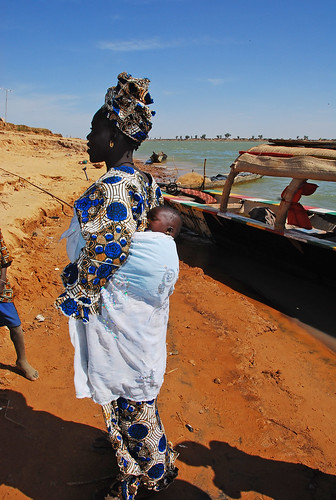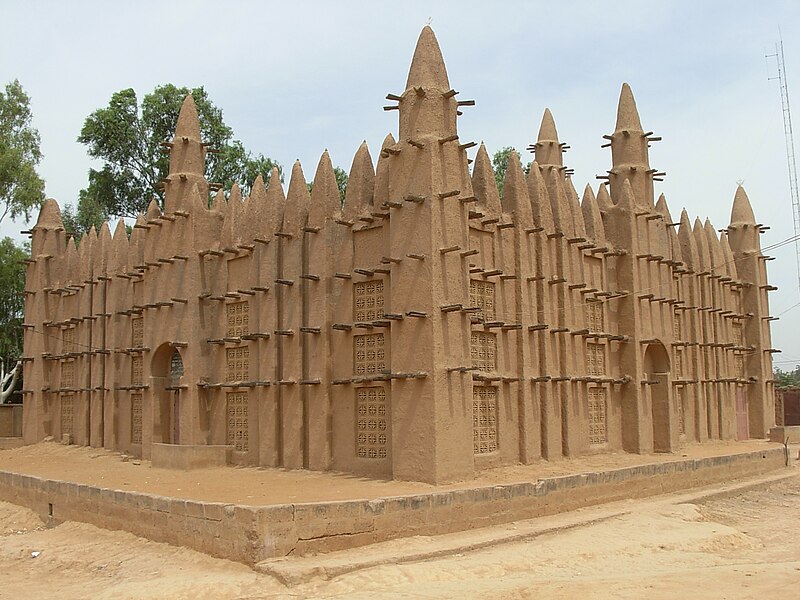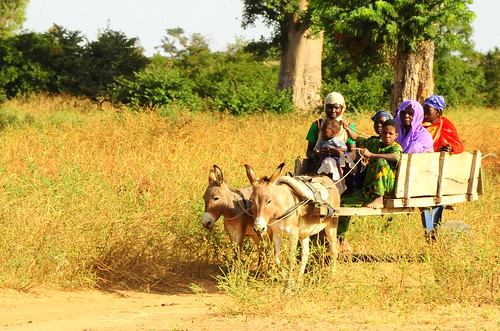Difference between revisions of "Adopting from Mali"
(→Adoption Authority) |
|||
| (One intermediate revision by the same user not shown) | |||
| Line 63: | Line 63: | ||
Ministère de la Promotion de la Femme, de l’Enfant et de la Famille (MPFEF) | Ministère de la Promotion de la Femme, de l’Enfant et de la Famille (MPFEF) | ||
| − | '''NOTE:''' If any of the following occurred prior to April 1, 2008 (the date on which the Hague [[Adoption]] Convention entered into force with respect to the United States), the Hague [[Adoption]] Convention may not apply to your [[adoption]]: 1) you filed a Form [[I-600A]] identifying [[Mali]] as the country where you intended to [[adopt]]; 2) you filed a Form [[I-600]]; or, 3) the [[adoption]] was completed. Under these circumstances, your [[adopted]] child’s visa application could continue to be processed in accordance with the immigration regulations for non-Convention adoptions. For more information, read about [ | + | '''NOTE:''' If any of the following occurred prior to April 1, 2008 (the date on which the Hague [[Adoption]] Convention entered into force with respect to the United States), the Hague [[Adoption]] Convention may not apply to your [[adoption]]: 1) you filed a Form [[I-600A]] identifying [[Mali]] as the country where you intended to [[adopt]]; 2) you filed a Form [[I-600]]; or, 3) the [[adoption]] was completed. Under these circumstances, your [[adopted]] child’s visa application could continue to be processed in accordance with the immigration regulations for non-Convention adoptions. For more information, read about [https://travel.state.gov/content/travel/en/Intercountry-Adoption/Adoption-Process/how-to-adopt/hague-transition-cases.html Transition Cases]. |
| − | + | ||
==The Process== | ==The Process== | ||
| Line 176: | Line 175: | ||
==SOURCE== | ==SOURCE== | ||
| − | '''Intercountry [[Adoption]], Bureau of Consular Affairs. U.S. Department of State Country Information'''[ | + | '''Intercountry [[Adoption]], Bureau of Consular Affairs. U.S. Department of State Country Information''' [[adoption]].state.gov/country_information/country_specific_info.php?country-select=[[mali]] |
[[Category: International Adoption]] | [[Category: International Adoption]] | ||
Latest revision as of 13:45, 17 June 2021
Notice: As of July 14, 2014, all individuals and agencies facilitating international adoptions must be in compliance with the Intercountry Universal Accreditation Act.
The information contained on this website is for educational purposes only and is not intended to be a substitute for professional legal advice. Always seek the advice of a licensed and qualified professional. While the content of this website is frequently updated, information changes rapidly and therefore, some information may be out of date, and/or contain inaccuracies, omissions or typographical errors.
Contents
About Mali
The Sudanese Republic and Senegal became independent of France in 1960 as the Mali Federation. When Senegal withdrew after only a few months, what formerly made up the Sudanese Republic was renamed Mali. Rule by dictatorship was brought to a close in 1991 by a military coup that ushered in a period of democratic rule. President Alpha KONARE won Mali's first two democratic presidential elections in 1992 and 1997. To learn more please read About Mali.
Mali Adoption Alert
There have been numerous adoption alerts for Mali. To learn more please read the Mali Adoption Alert page.
Hague Convention Information
Mali is a party to the Hague Convention on Protection of Children and Co-operation in Respect of Intercountry Adoption(Hague Adoption Convention). Intercountry adoption processing in Hague countries is done in accordance with the requirements of the Convention; the U.S. implementing legislation, the Intercountry Adoption Act of 2000 (IAA); and the IAA’s implementing regulations, as well as the implementing legislation and regulations of Mali. To learn more please read Mali and the Hague Convention.
Who Can Adopt
In addition to the U.S. requirements, Mali obliges prospective adoptive parents to meet multiple requirements in order to adopt a child from Mali. To learn more please read about Who Can Adopt from Mali.
Who Can Be Adopted
Because Mali is party to The Hague Adoption Convention, children from Mali must meet the requirements of the Convention in order to be eligible for adoption. To learn more please read about Who Can Be Adopted from Mali.
How to Adopt
WARNING: Mali is party to the Hague Adoption Convention. Do not adopt or obtain legal custody of a child in Mali before a U.S. consular officer issues an “Article 5 Letter” in the case. Read on for more information.
Adoption Authority
Direction Nationale de l’Enfant et de la Famille (Direction Nationale), Ministère de la Promotion de la Femme, de l’Enfant et de la Famille (MPFEF)
NOTE: If any of the following occurred prior to April 1, 2008 (the date on which the Hague Adoption Convention entered into force with respect to the United States), the Hague Adoption Convention may not apply to your adoption: 1) you filed a Form I-600A identifying Mali as the country where you intended to adopt; 2) you filed a Form I-600; or, 3) the adoption was completed. Under these circumstances, your adopted child’s visa application could continue to be processed in accordance with the immigration regulations for non-Convention adoptions. For more information, read about Transition Cases.
The Process
Because Mali is party to The Hague Adoption Convention, prospective adoptive parents must follow a specific process designed to meet the Convention’s requirements. A brief summary of the Convention adoption process is given below. You must complete these steps in the following order so that your adoption meets all necessary legal requirements. Adoptions completed out of order may not confer immigration benefits on the adopted child (i.e. it is possible the child would not qualify for an immigrant visa if adopted out of order).
- Choose a U.S. accredited or approved adoption service provider
- Apply to USCIS to be found eligible to adopt
- Be matched with a child by authorities in Mali
- Apply to USCIS for the child to be found eligible for immigration to the United States and receive U.S. agreement to proceed with the adoption
- Adopt the child in Mali
- Obtain a U.S. immigrant visa for your child and bring your child home
To learn more about this process please read How to Adopt from Mali.
Traveling Abroad
Applying for Your U.S. Passport
A valid U.S. passport is required to enter and leave Mali. Only the U.S. Department of State has the authority to grant, issue, or verify U.S. passports. To learn more please read about Traveling Abroad in Mali.
After Adoption
Many adoptive parents find it important to find support after the adoption. There are many public and private nonprofit post-adoption services available for children and their families. There are also numerous adoptive family support groups and adoptee organizations active in the United States that provide a network of options for adoptees who seek out other adoptees from the same country of origin. Take advantage of all the resources available to your family -- whether it is another adoptive family, a support group, an advocacy organization, or your religious or community services.
Here are some places to start your support group search:
Child Welfare Information Gateway
North American Council on Adoptable Children
Adoption Services Support Groups for adopting Persons
NOTE: Inclusion of non-U.S. Government links does not imply endorsement of contents.
Contact Information
U.S. Embassy in Mali
Ambassade des USA ACI 2000 Rue 243 Porte 297 B.P. 34 Bamako Tel: +(223)-20-70-23-00 Email: consularbamako@state.gov Internet: U.S. Embassy Mali
U.S. Embassy in Senegal
U.S. Embassy Avenue Jean XXIII, angle Rue Jacques Bugnicourt - BP 49 Dakar, Senegal Tel: +(221) 33-829-2100 Fax: +(221) 33-822-5903 Email: ConsularDakar@state.gov Internet: U.S. Embassy Senegal
Direction Nationale de l’Enfant et de la Famille Ministère de la Promotion de la Femme, de l’Enfant et de la Famille B.P. 2688 Bamako, Mali Email: mpfef@cefib.com
Embassy of Mali
Embassy of the Republic of Mali 2130 R Street NW Washington, D.C. 20008 Tel: (202) 332-2249 Fax: (202) 332-6603 Internet: Embassy of Mali
Office of Children’s Issues
U.S. Department of State CA/OCS/CI SA-17, 9th Floor Washington, DC 20522-1709 Tel: 1-888-407-4747 Email: AdoptionUSCA@state.gov Internet: U.S. Department of State
U.S. Citizenship and Immigration Services (USCIS)
For questions about immigration procedures: National Customer Service Center (NCSC) Tel: 1-800-375-5283 (TTY 1-800-767-1833) Internet: USCIS
For questions about filing a Form I-800A or I-800 petition:
National Benefits Center
Tel: 1-877-424-8374 (toll free); 1-816-251-2770 (local)
Email: NBC.Adoptions@DHS.gov
SOURCE
Intercountry Adoption, Bureau of Consular Affairs. U.S. Department of State Country Information adoption.state.gov/country_information/country_specific_info.php?country-select=mali










